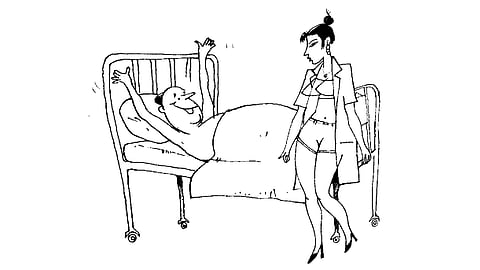Kollupitiyas Chinese girls
Even by the largest stretch of the most fertile imagination, the dingy little place in the Colombo neighbourhood of Kollupitiya could not be a Chinese medical centre. There was no sign of a bustling practice in the two-storey building, not a bottle of medicine in sight. A weather-beaten signboard announced that Chinese herbal medicine was practised inside. But whatever herbal application being offered did not seem remotely medical in nature
Two Chinese women sat on the porch… waiting. One wore a flashy gold dress while the other was in bright yellow trousers and a tight black tee shirt. Both wore heavy make-up and smelt strongly of perfume. One woman spoke English. At least, she grasped the word 'doctor' and hurried inside to get her boss. When she returned, she sported an old white overall – the type worn by nurses and doctors – over her provocative outfit.

